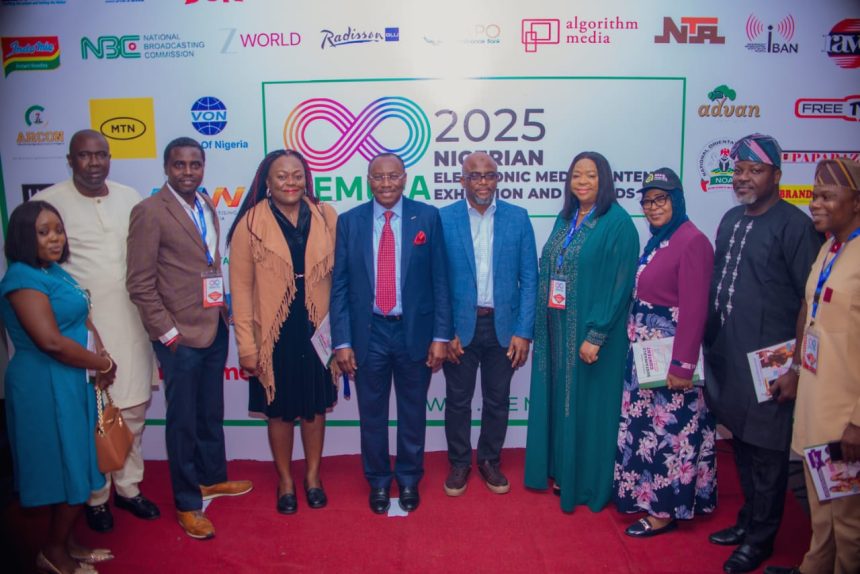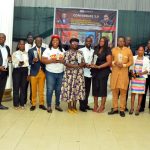The Electronic Media Content Owners Association of Nigeria (EMCOAN) at the 4th Nigerian Electronic Media Content Exhibition and Awards (NEMCEA) engaged stakeholders, Industry leaders on the path to sustain the growth of creative economy.
NEMCEA is an initiative of the EMCOAN, an umbrella organisation for Chief Executives Officers (CEOs) of Nigerian Media production companies that produce and provide content for television, radio and new media.
NEMCEA an annual event which debut in 2022 brings together stakeholders in the Media Industry within and outside Nigeria with three major highlights of Content Market/Exhibition, Conference/Master Class and Industry Award.
The two-day event with the theme: ‘Sustainable Content Creation in a fragmented Media Space’ held at the Radisson Blu Hotel, Ikeja, on Tuesday 16th and Wednesday, 17th, 2025 had in attendance a large number of stakeholders in the industry.
Welcoming guests at the opening ceremony, the President of EMCOAN, Mr. Adeniji Omirin said NEMCEA is a market place of ideas, a hub for collaboration, and a celebration of excellence in the Nigerian media and creative economy.
He said each year, the Association have seen how bringing together stakeholders from television, film, radio, advertising, digital platforms, and media buying opens up new opportunities, strengthens relationships, and pushes the industry forward.
“This year our central theme speak to the reality we face today, an industry where audiences are scattered across many platforms, yet the demand for quality local content remains strong.
“Our task therefore is to find ways to create, distribute, and monetize content in a way that ensures sustainability for creators and value for audiences,” he said.
Stating that EMCOAN remain fully committed to protecting content owners, promoting local content and building a stronger creative economy in Nigeria, he added that NEMCEA is one way the Association live out the commitment and they are proud of how far it has come in just four editions.
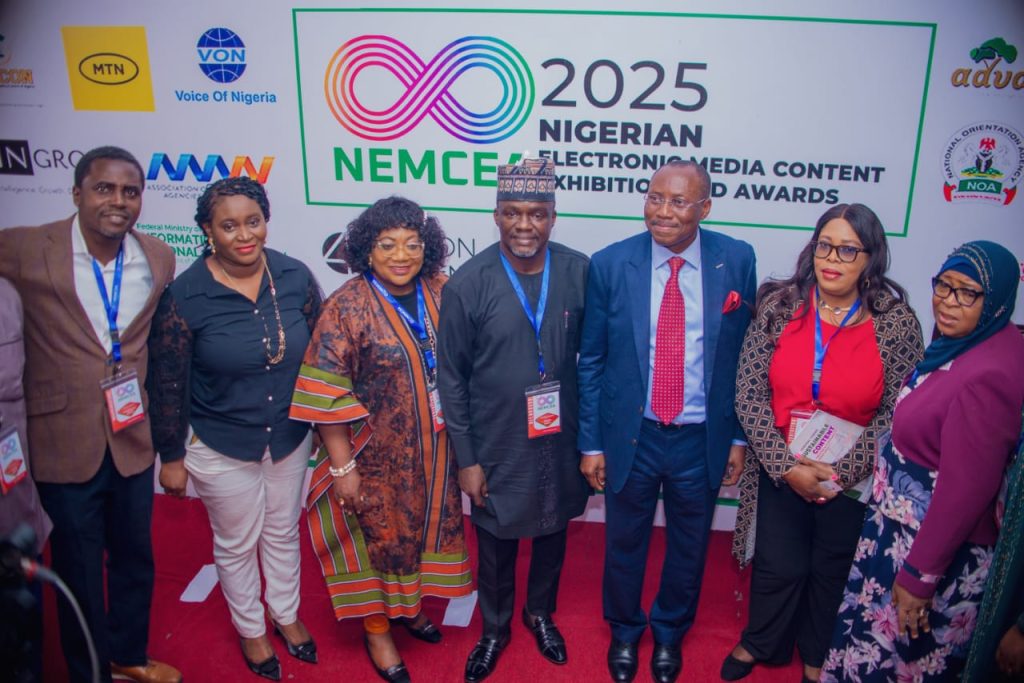
Omirin also explained that the introduction of AI Master Class in addition to the event this year reflects EMCOAN’s belief that the industry must not be left behind in the global digital transformation while also reminding stakeholders of the ethical considerations that must guide its use.
He called on all stakeholders which include content creators, broadcasters, advertisers, agencies, policy makers and investors to take full advantage of the opportunities NEMCEA offers yearly in other to continue to build an industry that entertains, educates, empowers, and drives economic growth for the nation.
The Project Director, Mr. Alayande Stephen in his speech commended the resilience, creativity and innovation of the electronic media industry, adding that NEMCEA 2025 theme: ‘Sustainable Content Creation in a Fragmented Media Space’ couldn’t be more apt and befitting as fragmentation presents a challenge no doubt from the layman’s perspective.
He however said thinking deeper, it offers a monumental opportunity for those who can adapt, innovate, and create content that truly connects.
“NEMCEA has grown to be the definitive platform for showcasing, network and celebrating this very spirit,” he disclosed.
Alayande explained further that at its core, NEMCEA remains Nigeria’s premier marketplace for the discovery and exchange of electronic media content. “Our vibrant content market and exhibition is once again a hub of activity where business gets done and partnership are forged.
He appreciated all the partners, especially the sponsoring partners and industry partners for their support over the years.
The Minister of Information and National Orientation, Alh. Idris Mohammed Malagi, represented by Director General, Voice of Nigeria (VON), Mr. Jibrin Baba Ndache emphasized the need for sustainable content creation in Nigeria’s media landscape, noting the impact of technology on information dissemination.
He commended the organisers for their vision and commitment to advancing Nigeria’s media content industry, stressing the need for professional standards and cultural preservation, with their efforts recognized as critical to building a stronger media sector.
He emphasized the role of the media in national development and reaffirmed the ministry’s commitment to creating an enabling environment for content creators.
On challenges facing the media industry the minister listed it to include funding, intellectual property protection, digital transition, and global competitiveness.
He however said despite the challenges, the Ministry is working assiduously in shaping Nigeria’s narrative positively, with renewed efforts to strengthen international partnerships and content production.
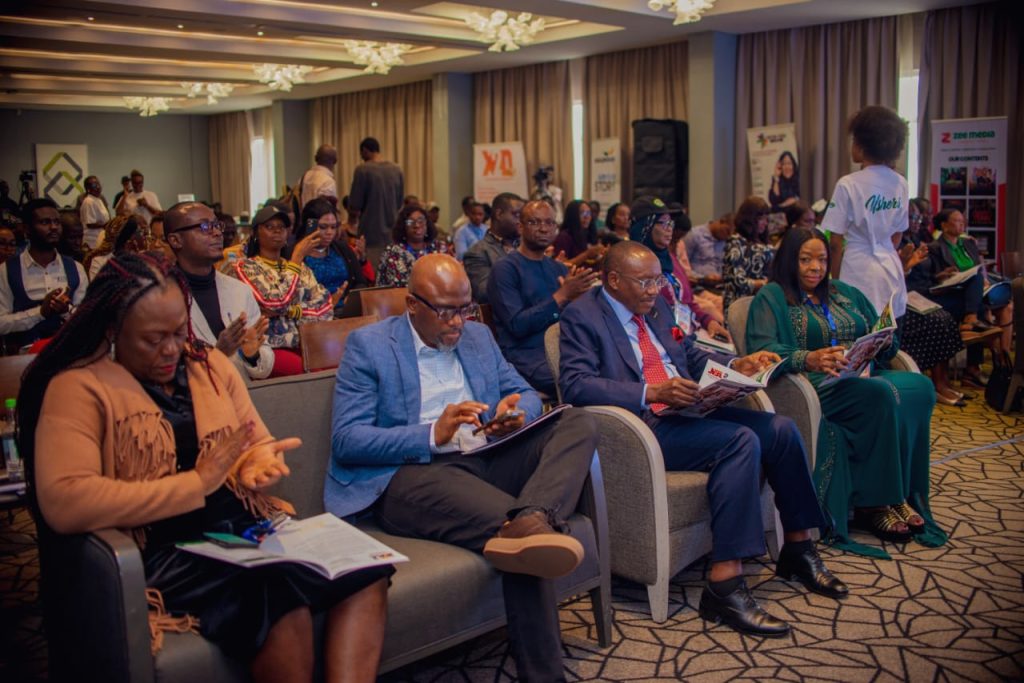
In his remarks, the former Minister for Information and Culture, Alh. Lai Mohammed disclosed that a decade ago, broadcasting followed a very simple path in which producers created, broadcasters aired and families sat together at fixed hours to watch but that neat pattern has dissolved.
According to him, today’s Nigerian and global audiences grow freely across screens. One moment, they are on a large media room, television and next, they are catching highlights on a smartphone while commuting or streaming on a laptop in an airport lounge.
“Even radio listening has shifted with more than 40% of global listeners using digital or mobile apps. Price Waterhouse Cooper Global Entertainment and Media Output 2024-2028 projects global streaming video revenues to exceed US $250 billion by 2028. With linear TV contracted by about 0.6% per year. Podcasts and digital radio are growing at 7%.
“According to ARCON 2024 reports, online video now attracts about 32% of total advertising spend. While terrestrial TV has fallen to under 40%.
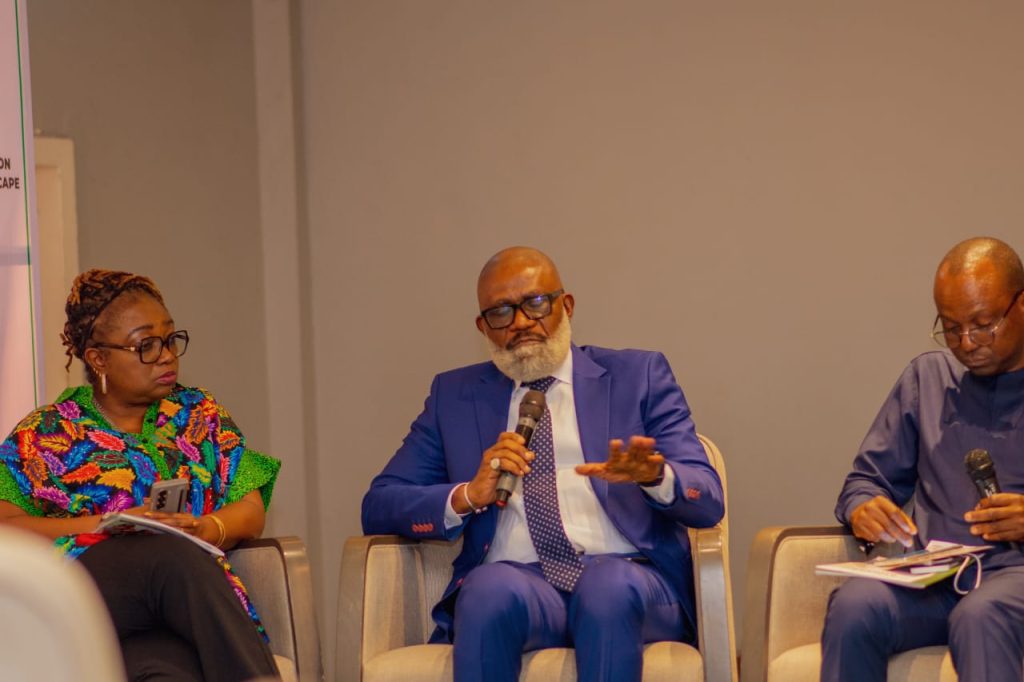
Giving the statistics further, he said: “The Nigerian Communications Commission places smartphone penetration at about 57% and 4G or 5G broadband coverage at about 85% of the population. The implication is simple; a production released only on terrestrial TVs or FM radio already misses a significant portion of its potential audience.”
He however added that though the consumer migration challenges the one-channel advertising model but also unlocks fresh opportunities.
Giving examples of how BBC Studios UK transformed from license fee dependency to a commercial powerhouse, generating 2.5 billion dollars annually through global distribution, format sales and co-productions, also South Korea’s K-Drama X-Force earned over U.S. $10 billion in 2023 and Showmax Original in Kenya stabilized income through partnerships with telecom operators and bundle data and subscriptions; , Alh. Mohammed said Nigeria can do same.
He said the shift to a multi-platform data-driven, environmentally responsible media economy is irreversible. But it’s also a limitation. “By aligning policy, finance and creativity, Nigeria can ensure that its stories meet every screen; television, radio, cable, live stream and mobile and remain profitable, culturally vibrant and globally competitive.”
On how to achieve it, the former Minister of Information and Culture, said Nigeria need to develop shared intellectual property pools and cross-border co-financing funds so that producers spread and reach regional investors.
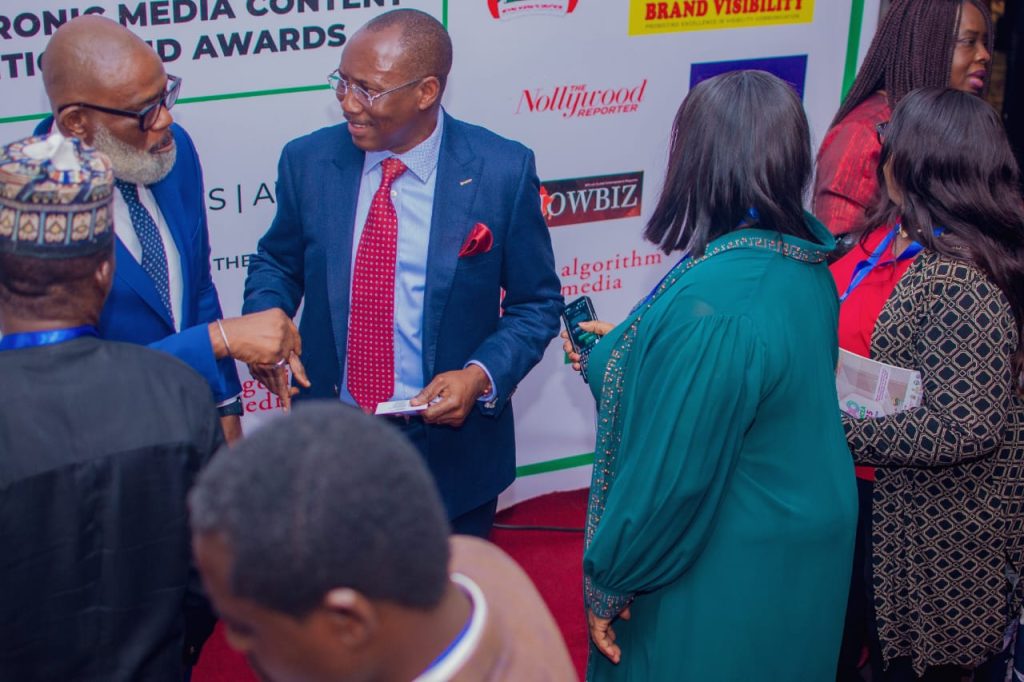
“Adopt multi-window release strategies that is television, streaming culture and short-form social tools to reach audiences across TV, cable, live stream and more, Invest in data-driven commissioning and robust audience measurements; Establish national digital archives and meta data standards because strong cataloguing will keep Nigerian production searchable, reusable and profitable for decades.
“Spreading cultural identity, sustainable content must also preserve and protect the national culture. Nollywood is an inspiring example because according to UNESCO and the Nigerian Film Corporation, the industry generates about US $1 billion annually and provides over 1 billion jobs while showcasing Nigerian languages and lifestyles to the world.”
He also urged on the introduction of targeted grants for indigenous language productions and global streaming platforms to meet new goals of local content; Expanding film and media training programmes to groom young writers, animators and editors and Establishment of voluntary but measurable green production standards for Nigerian studios, supported by tax incentives and public recognition.
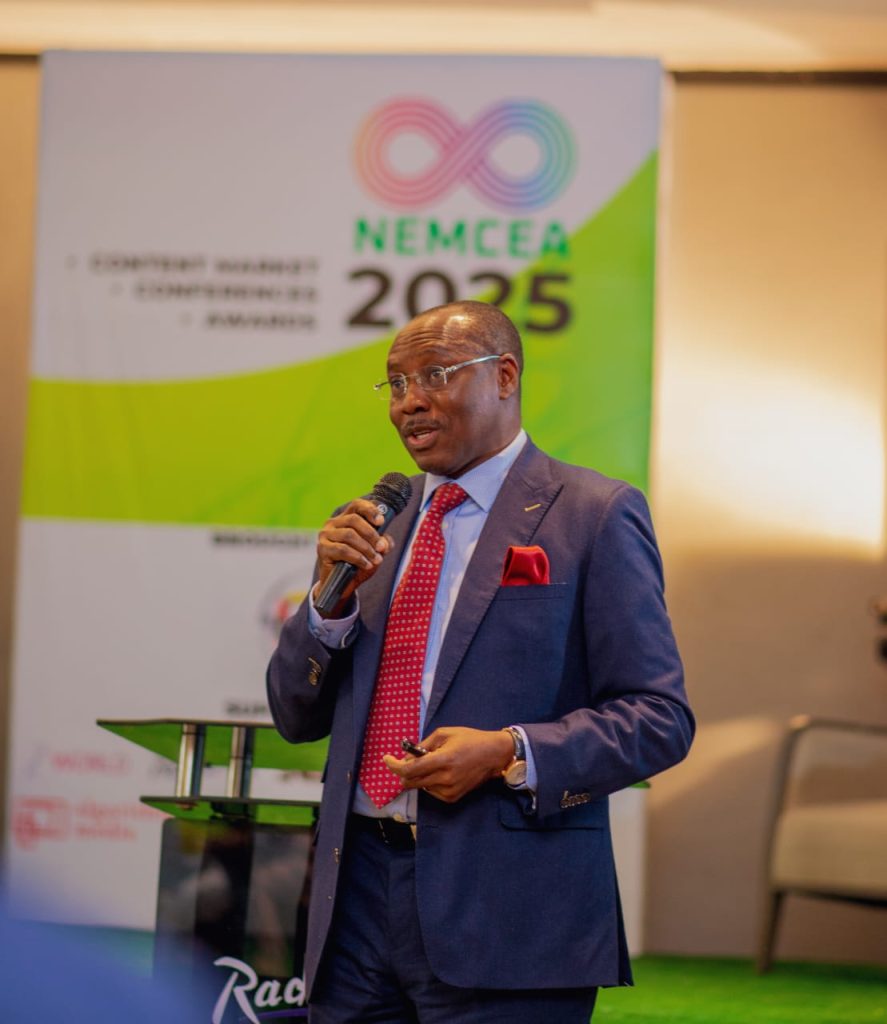
Others he said include: “Update the National Broadcasting Code to cover streaming services and cross-platform advertising; create a content sustainability council of regulators, creators and investors to set standards for metrics, environmental impact and fair contract and Launch of a national content registry and rights trading exchange so that intellectual property can generate income worldwide.
He also insisted on the need to establish a content sustainability council, issue green production guidelines, roll out tax credits for multiple platform earnings. “In the medium term that is between 2027 and 2028, optionalise the content registry and rights trading exchange and also expand audience measurement nationwide.
“Long-term, in the year 2028, position Nigeria as West Africa’s primary hub for multilingual digital force production and attract international co-production,” he added.
Industry leaders at the event include President Association of Advertising Agencies of Nigeria (AAAN), Mr. Lanre Adisa; President Media Independent Practitioners Association of Nigeria (MIPAN), Mr. Dozie Okafor and President Advertisers Association of Nigeria (ADVAN), Mr. Osamede Uwubanwmen were optimistic that the creative economy is another big thing for Nigeria, however there is the need for collaboration among the media industry for the nation to strive in it.
They urged the government to roll out policies that will benefit stakeholders and players in the creative economy not policies that will make them think they are been restricted.
They commended EMCOAN for organizing the event which has come a long way to help grow the creative economy.
Also present at the event were the Director General of National Broadcasting Commission (NBC); Representatives of the Advertising Regulatory Council of Nigeria (ARCON); Nigerian Television Authority (NTA) and Nigerian Copyright Commission (NCC), among others.
BV.


